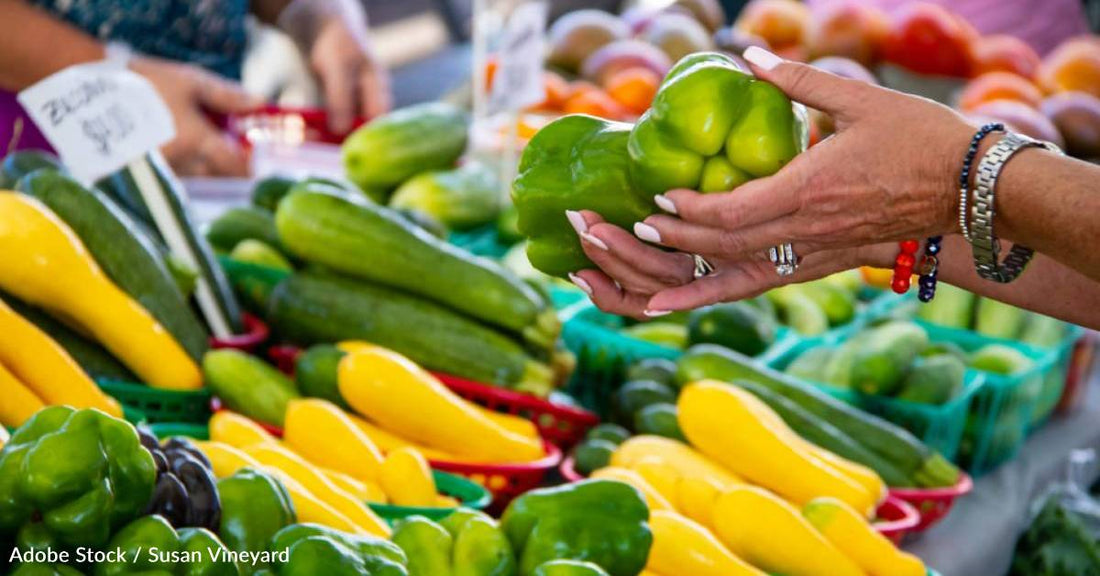New Study Finds a Produce Prescription Program for Diabetes Could Provide Big Benefits
Michelle Milliken
Making plant-based diet decisions can provide health benefits to those living with diabetes. Unfortunately, diabetes patients often struggle to afford such necessities due to the cost of insulin and other supplies, so it may not always be easy to access these healthy foods. A new study shows that a nationwide produce prescription program for lower-income diabetes patients may help.
Researchers from Tufts University’s Friedman School of Nutrition Science and Policy recently modeled impacts of a nationwide produce prescription program. They say such programs are already available through some public health agencies and nonprofits, which help patients with certain health conditions get vouchers for free or discounted fruits and veggies. In the research team’s model, which would offer this service for diabetes patients struggling to afford food, the findings showed that there could be savings of approximately $40 billion in medical bills, due to lower incidence of cardiovascular disease.
Dariush Mozaffarian, cardiologist and the study’s senior author, explains, “Of the strategies that can improve nutrition and diet-related health outcomes for Americans, evidence continues to build that produce prescriptions are a terrific option. These innovative treatments are exciting because they can not only improve health and reduce health care spending, but also reduce disparities by reaching those patients who are most in need.”
Their study, published in the Journal of the American Heart Association, used data from the National Health and Nutrition Examination Survey from 2013 to 2018. In the model they created, a national produce prescription program would be available to adults between 40 and 79 years of age with diabetes and food insecurity.
They found that such a program could reduce cardiovascular disease cases by nearly 300,000 and increase quality-adjusted life years by 260,000, while saving $39.6 billion in health care spending and $4.8 billion in costs stemming from lost productivity. The cost of the program, meanwhile, was estimated at $44.3 billion. That would include screening, food, nutrition education, and administration.
The team’s analysis also found that the program would benefit different demographics in a similar way.
Lu Wang, first author and postdoctoral fellow at the Friedman School, explains, “When we looked at different subgroups of Americans, we found broadly similar benefits by insurance type, race, and ethnicity. These results suggest that a national produce prescription initiative could benefit all Americans, highlighting the potential of Food is Medicine strategies to alleviate health inequities caused by food and nutrition insecurity and diet-related diseases.”
The study assumed that with the vouchers, participants would increase their fruit and vegetable consumption by an average of 0.8 servings per day, which would improve their BMI and blood pressure. The researchers note that if fewer people than expected took part in the program, their projections would be reduced, but they would still be meaningful.
To read the whole study, click here.




